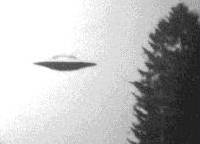Article/Document:
The Book 'Rare Earth' Punctures Alien Assumptions
Space.com, 09 February 2000
original source | fair use notice
Summary: We may not be alone, but our extraterrestrial neighbors are likely to be bacteria. In Rare Earth: Why Complex Life is Uncommon in the Universe, geologist Peter D. Ward and astronomer Donald Brownlee present a thoughtful, well-argued case that animals (let alone astronomers) are rare and perhaps limited to Earth.
By Kenneth Silber
Staff Writer
posted: 03:10 pm ET
09 February 2000
We may not be alone, but our extraterrestrial neighbors are likely to be bacteria.
In Rare Earth: Why Complex Life is Uncommon in the Universe, geologist Peter D. Ward and astronomer Donald Brownlee present a thoughtful, well-argued case that animals (let alone astronomers) are rare and perhaps limited to Earth.
The universe, they note, contains numerous "dead zones," regions in which life seems unlikely. These include the centers of galaxies (too much radiation), the edges of galaxies (not enough elements), and solar systems that have close-in "hot Jupiters" (gas giants that would knock smaller planets into a star).
By contrast, Earth's environs seem unusually benign. Our sun is more massive than most stars, allowing planets to orbit at a safe distance, but doesn’t produce as much dangerous radiation as the most massive stars. Jupiter is well-positioned to divert comets away from Earth. The moon stabilizes our planet's tilt.
Even amid such fortuitous circumstances, Earth has had repeated episodes of mass extinction, the authors point out. The emergence and survival of animal life may have depended on unusual conditions and events, such as ice ages and continental movements that helped ensure a diversity of species.
At the same time, the authors argue, simple organisms such as bacteria -- which arose quite early in Earth's history and survive in environments where animals cannot -- may be commonplace in the cosmos.
To be sure, all this is highly speculative. We know little about the details of the universe's "dead zones" -- for example, there may be habitable moons around hot Jupiters.
And, as Ward and Brownlee acknowledge, our understanding of the forms that life may take is limited by our experience on Earth.
The cold between the stars
Nonetheless, the authors are persuasive, puncturing assumptions that sheer numbers of stars virtually ensure widespread advanced life. They seek, reasonably, to update the Drake Equation, which estimates the number of civilizations in the galaxy, to include such factors as where a star is located in the galaxy.
The authors seem to believe that intelligent life probably exists somewhere else in the galaxy, but their line of reasoning also leaves open the possibility that Earth is, as they put it, "extraordinarily rare." Interestingly, if the authors are wrong about bacterial life, this would strengthen their main argument.
Less convincing, however, is their assertion that the "Rare Earth Hypothesis" gives added reason for protecting endangered animal species on Earth. That's presumably something worth doing in any event.
Read more articles on this topic:






